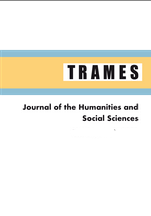INSTITUTIONALIZING THE SALAFI THOUGHTS BY THE STATE: THE SAUDI SALAFISM AS A CASE
INSTITUTIONALIZING THE SALAFI THOUGHTS BY THE STATE: THE SAUDI SALAFISM AS A CASE
Author(s): Kardo RachedSubject(s): Political history, Government/Political systems, Political behavior, Politics and religion, Studies in violence and power, Post-War period (1950 - 1989), Transformation Period (1990 - 2010), Sociology of Religion
Published by: Teaduste Akadeemia Kirjastus
Keywords: Middle East; Saudi Arabia; state-religion relation; Islamic thoughts; Salafism; violent religious groups;
Summary/Abstract: The Arab Spring, as a historical turning point in the Middle East, sparked an unparalleled explosion of violent jihadist groups, armed rebel groups, and transnational religious movements. These violent religious groups claim to advance the correct interpretation of Salafism according to their ideological principles and their interpretation of Islamic rule. To examine the nature, causes, and parties involved in a violent religious group’s turbulent infrastructure, one needs to have a deep understanding of Salafism’s thought and political perspective. This research, conducted using the historical-analytical method, identifies the triangular relationship between the state, its institutions, and Salafism. Our case study is the Saudi state’s role in institutionalizing Salafist doctrine and construing its political behavior. This relationship has deep historical roots, but the participating entities have changed over time from friends to foes. We highlight the analogy and mechanisms used historically by the Saudi state’s apparatus to design and organize Salafist thought and its political platform.
Journal: TRAMES
- Issue Year: XXV/2021
- Issue No: 2
- Page Range: 239-255
- Page Count: 17
- Language: English

